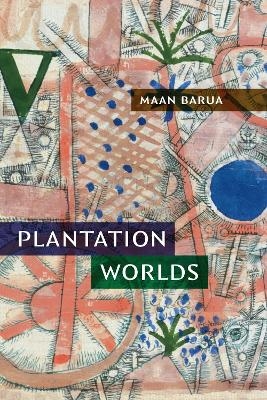
Plantation Worlds
Seiten
2024
Duke University Press (Verlag)
978-1-4780-2561-0 (ISBN)
Duke University Press (Verlag)
978-1-4780-2561-0 (ISBN)
Maan Barua explores the fraught politics of dwelling between elephants and villagers on land that once harbored colonial plantations in northeastern India, showing how the legacies of colonialism impact the relationship between human and nonhuman life in a time of global environmental upheaval.
In Plantation Worlds, Maan Barua interrogates debates on planetary transformations through the histories and ecologies of plantations. Drawing on long-term research spanning fifteen years, Barua presents a unique ethnography attentive to the lives of both people and elephants amid tea plantations in the Indian state of Assam. In the nineteenth and early twentieth centuries, nearly three million people were brought in to Assam’s plantations to work under conditions of indenture. Plantations dramatically altered the region’s landscape, plundered resources, and created fraught worlds for elephants and people. Their extractive logics and colonial legacies prevail as durations, forging the ambit of infrastructures, labor, habitability, and conservation in the present. And yet, as the perspectives of the Adivasi plantation worker community and lifeworlds of elephants show, possibilities for enacting a decolonial imaginary of landscape remain present amid immiseration. From the margins of the Global South, Barua offers an alternative grammar for articulating environmental change. In so doing, he prompts a rethinking of multispecies ecologies and how they are structured by colonialism and race.
In Plantation Worlds, Maan Barua interrogates debates on planetary transformations through the histories and ecologies of plantations. Drawing on long-term research spanning fifteen years, Barua presents a unique ethnography attentive to the lives of both people and elephants amid tea plantations in the Indian state of Assam. In the nineteenth and early twentieth centuries, nearly three million people were brought in to Assam’s plantations to work under conditions of indenture. Plantations dramatically altered the region’s landscape, plundered resources, and created fraught worlds for elephants and people. Their extractive logics and colonial legacies prevail as durations, forging the ambit of infrastructures, labor, habitability, and conservation in the present. And yet, as the perspectives of the Adivasi plantation worker community and lifeworlds of elephants show, possibilities for enacting a decolonial imaginary of landscape remain present amid immiseration. From the margins of the Global South, Barua offers an alternative grammar for articulating environmental change. In so doing, he prompts a rethinking of multispecies ecologies and how they are structured by colonialism and race.
Maan Barua is University Lecturer in Human Geography at the University of Cambridge and author of Lively Cities: Reconfiguring Urban Ecology.
Acknowledgments ix
Introduction. Postcolonial Fauna 1
1. Plantationocene 21
2. The Slow Violence of Infrastructure 64
3. Material Politics 98
4. Accumulation by Plantation 121
5. The Diagram of Connectivity 147
6. Decolonial Cartographies 185
Conclusion. A Reverse Déjà Vu 205
Glossary 217
Notes 221
Bibliography 257
Index 289
| Erscheinungsdatum | 22.08.2024 |
|---|---|
| Zusatzinfo | 35 illustrations |
| Verlagsort | North Carolina |
| Sprache | englisch |
| Maße | 152 x 229 mm |
| Gewicht | 454 g |
| Themenwelt | Geisteswissenschaften ► Geschichte ► Regional- / Ländergeschichte |
| Naturwissenschaften ► Biologie ► Ökologie / Naturschutz | |
| Naturwissenschaften ► Geowissenschaften ► Geografie / Kartografie | |
| ISBN-10 | 1-4780-2561-1 / 1478025611 |
| ISBN-13 | 978-1-4780-2561-0 / 9781478025610 |
| Zustand | Neuware |
| Haben Sie eine Frage zum Produkt? |
Mehr entdecken
aus dem Bereich
aus dem Bereich
Universalgelehrter, Polarreisender, Entdecker
Buch | Hardcover (2024)
mareverlag
CHF 39,20


